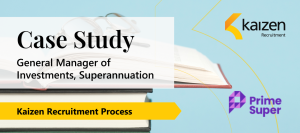Paraplanner Survival Training
There is a perception in the advice industry that the paraplanning function will be eaten away domestically by offshore outsourcing, until technology finally delivers on its promise and makes the job redundant. If a role is data-driven and largely rote, obsolescence at some stage is presumed a fait accompli.
It’s already happening. Firms are employing staff in the Philippines and India to produce cut-price statements and records of advice, while fintechs such as Nod and Artemis are leading the race to harness artificial intelligence and produce client-ready documents.
Yet there may be a limit to how effective AI solutions will be – and offshore outsourcing, while cost-effective, brings quality and information security concerns.
Paraplanners, whose value should, in theory, be depreciating, are in demand more than ever, says Fabian Ruggieri, a senior consultant at Kaizen Recruitment. However, their value proposition will need to shift as the advice world evolves. And they need to plan for that.
UP FOR GRABS
The most dramatic change to paraplanning in the last decade has been the success of outsourcing, which provides firms with on-demand resources to produce documents cheaply and quickly. Part of this success is due to the variety of outsourcing options available.
Offshore outsourcing, particularly in South-east Asian countries with low labour costs, provides the most inexpensive alternative to in-house resources.
DBA Advisory, which provides services out of the Philippines, is typical of the offshore companies that are decentralising the paraplanning function. DBA chairman David Lamb says the cost for a basic Statement of Advice ranges between $80 and $120 and the document is checked by “at least two people, both more senior”, before being sent out. The firm mandates three to six months of training for all staff, and offers sponsorship for RG 146 accreditation and postgraduate certification as an incentive for employees.
“We have about 22 or 23 paraplanners at the moment,” Lamb explains, “and we’d like to increase that to 60 or 80 in the next 12 months, if we can.”
Domestic outsourcing provides similar benefits, though steeper wages in Australia are reflected in the rate. Christie Rigg, director at Adelaide firm Plan Away, says the higher price ($255 for a basic SoA) is offset by more robust security protocols and the quality of locally produced documents.
“Sending requests offshore and out of the Australian legal system is not a good idea, because you can’t maintain security when you’re not responsible,” Rigg argues. “We’ve also found that the understanding of Australian grammar and financial advice strategies is lacking.”
The security issue is an important one for DBA’s Lamb, who points out that the company operates in both Australia and the Philippines and is bound by Australian privacy law. It carries professional indemnity insurance and systems are subject to robust penetration testing by clients such as AMP and Suncorp-Metway.
Another outsourcing option for advisers is to employ freelance paraplanners such as Richard Simpson, who is based in Melbourne and picks up work writing SoAs ad hoc. For Simpson, who mostly caters to “smaller practices with one to four advisers”, being able to enjoy close relationships with his core clients is a key advantage.
“I steer them in the right direction regarding tricky compliance areas,” he says, “and keep them up to date with compliance changes and government rules and regulations.”
A BLESSING AND A CURSE
While outsourcing has been a blessing to advisers, it has marginalised the role of domestic, in-house paraplanners and cost local jobs.
Kaizen’s Ruggieri acknowledges the “cost-effective and efficient” outsourcing solutions, yet warns that not all businesses can make them work.
“Only firms with effective operating processes in place are able to take advantage of this practice,” he says, noting that outsourced paraplanners still require all the client data and file notes, and their work must be checked in-house.
“As a result,” he says, “most firms prefer an in-house paraplanning team, to reduce the turnaround times and to enhance firsthand exposure to their clients and their needs.”
Manola Calvete, paraplanning manager at Stanford Brown, says the company uses a hybrid system combining DBA’s offshore services and a core group of in-house paraplanners.
“DBA staff are relatively skilled and have an education in Australian financial planning,” Calvete says, “and the cost is a fraction of what you’d pay for domestic staff.”
This hybrid system provides cost-efficiencies and quality control.
“We’ve really embraced outsourcing,” Calvete says. “It’s been a way for us to get more quality documents completed and spend more time focusing on clients.”
RIPE FOR AUTOMATION
If outsourcing was the first evolutionary wave to wash over the paraplanning role, technology is the second.
Influential US adviser Michael Kitces says this wave of change will be a tsunami.
“I do think paraplanners are much more threatened by the current environment than advisers themselves,” he says. “The challenge is going to be, as the technology gets better and automates more things, why do advisers need administrative staff at all?”
Kitces sees technology as all-encroaching. He envisages a time when even strategy is completely automated, with paraplanners being marginalised out of existence.
“The role of a paraplanner is everything that comes after the client says what their goals are. Then we try to come up with a strategy and execute it,” he explains. “But financial planning is just a giant flowchart of strategies. You can teach a computer to do that.”
Tech advocate and Netwealth joint managing director Matt Heine takes a less dystopian view. Heine is an investor in start-up company Nod, which uses artificial intelligence to build scaled SoAs in minutes, yet he doesn’t envisage this kind of technology completely replacing the paraplanning role.
“If the paraplanners’ role is purely production, they’ll be replaced,” he says, “but humans will always leverage their creative side to make themselves useful.”
Yet Heine is adamant that the next generation of software, which will be capable of producing more tailored and client-ready documents, is ahead of us.
“Firms like Nod will use a corpus of existing documents with a specific strategy text,” Heine says. “It’s already happening. Incumbent software like XPLAN and Midwinter has a traditional approach to this, but natural language processing (NLP) tools will learn how advisers like to present and document in real time.”
These tools can not only produce documents on the front end, but also check them for compliance on the back end. Matt Symons, director at Red Marker, has developed Artemis software that uses NLP to review documents against regulatory requirements and a firm’s own guidelines. The software, which Symons
likens to a “compliance spellcheck on steroids”, is especially relevant in light of a recent finding from the Australian Securities and Investments Commission that 75 per cent of institutional advice files it reviewed were non-compliant.
‘STITCHED TOGETHER’
Paraplanning technology may be the future, but its effect on the present has been underwhelming.
Stanford Brown’s Calvete says the firm will trial Artemis, but hasn’t come across any front-end software that is more functional than a standard CRM template.
“I’ve been hearing for years how you can have a perfect SoA in five minutes, but I’ve never seen them meet the standards of a document that we would hand over to a client,” she says. “It feels stitched together. We haven’t seen anything better than what XPLAN has been doing, as far as templates go, for the last five or 10 years.”
Freelancer Simpson also acknowledges the lack of progress. “The threat of technology replacing paraplanners has been around a long time, and I’ve seen zero progress in this area in five years,” he says.
Anecdotally at least, the view stands that there are no new tools more able to produce financial planning documents than the current crop of standard templates. Perhaps Nod or one of its competitors will make a giant leap and add something more, in which case paraplanners may find themselves needing to embrace the tool that is trying to replace them.
REMEDIATION STIMULUS
Despite the immediate pressure of outsourcing and the looming spectre of technology, in today’s job market, paraplanners are strikingly well-placed. Average salaries have risen dramatically, and as Plan Away’s Rigg says, “good paraplanners are harder to find than hens’ teeth”.
This would seem incongruous with the current environment but for one factor: institutional advice firms have been recruiting skilled paraplanners for remediation work, which has drained the talent pool and placed a premium on the role. As Stanford Brown’s Calvete explains: “There are a lot of remediation contracts around. “They involve someone reviewing advice that has been previously issued to a client and determining if the advice was appropriate. They’re typically short-term, six or 12 months, and pay well – up to $140,000. Paraplanners are being soaked into these programs, so it’s been difficult to source talent in the market.”
As a result, starting salaries for paraplanners have risen “a good $10K to $20K in the last two years”, Calvete estimates. Paraplanners are also increasingly able to set the terms of employment, she says, which often include time working from home.
The stimulus remediation contracts have provided may be short lived, however. A spokesperson for Commonwealth Bank reports that it has “largely completed its Open Advice Review program and has no plans to recruit further remedial resources”.
NOTHING FOR NOVICES
As outsourcing and technology soak up the bottom end of paraplanning tasks, it will become increasingly difficult to enter the role. The work novices traditionally cut their teeth on, such as writing RoAs and basic pension SoAs, will be gone.
Calvete notes that new entrants to paraplanning will need to have the basics already covered, and the entry-level benchmark for technical knowledge will rise.
“How people get into paraplanning will be an interesting question, because you’ll need to come armed with a lot of knowledge,” she says. “The easy stuff that you might do initially is already being done by automation, so it might be the people with advanced technical skills who thrive.”
This may also lead to more scrutiny of the education standards of paraplanners – a topic that has been neglected in the recent maelstrom surrounding improvements to adviser standards for ethics and education.
“At the moment, there aren’t any standards for a paraplanner,” Calvete says. “You can basically get into the industry without any qualifications.”
THE ROAD AHEAD
Paraplanners who wish to maintain the role in the future will need to expand their skillset into more niche value areas.
Acting as a sounding board for advisers will become core expertise, not just a supplementary skill. Justin Ishac, a paraplanner at Integral Private Wealth, says the relationships paraplanners share with advisers will fortify their value.
“Having that other person to help figure out the single best strategy is important,” Ishac says. “Most advisers would love to have a person they can turn to at any minute who knows the client – as well as the adviser – inside-out.”
Calvete identifies workflow management as another key to paraplanners retaining their value.
“We’ll see a reshaping of the role,” she says. “Paraplanners will be the ones arranging everything in the background and directing traffic. The adviser doesn’t want to be inputting information into a program, so there is a role for a conduit.”
For freelancer Simpson, a move into a related role may be on the cards.
“I won’t be paraplanning forever,” he says. “I’ll adapt and move on to another area eventually, possibly compliance or fund management.”
Simpson highlights an important point – paraplanners’ technical training gives them a solid platform from which to take a number of paths. For now, though, the only certainty is that if paraplanners are to retain their value in the industry, the direction they need to move is up.
*This article was written by Tahn Sharpe and printed in Professional Planner on 18 April 2018. Please click here to read the original article.
Kaizen Recruitment specialises financial services recruitment across funds management, wealth management, superannuation, investment consulting and insurance. We are based in Melbourne and Sydney. For assistance or further information please telephone our office at +61 3 9095 7157 or submit an online form.











